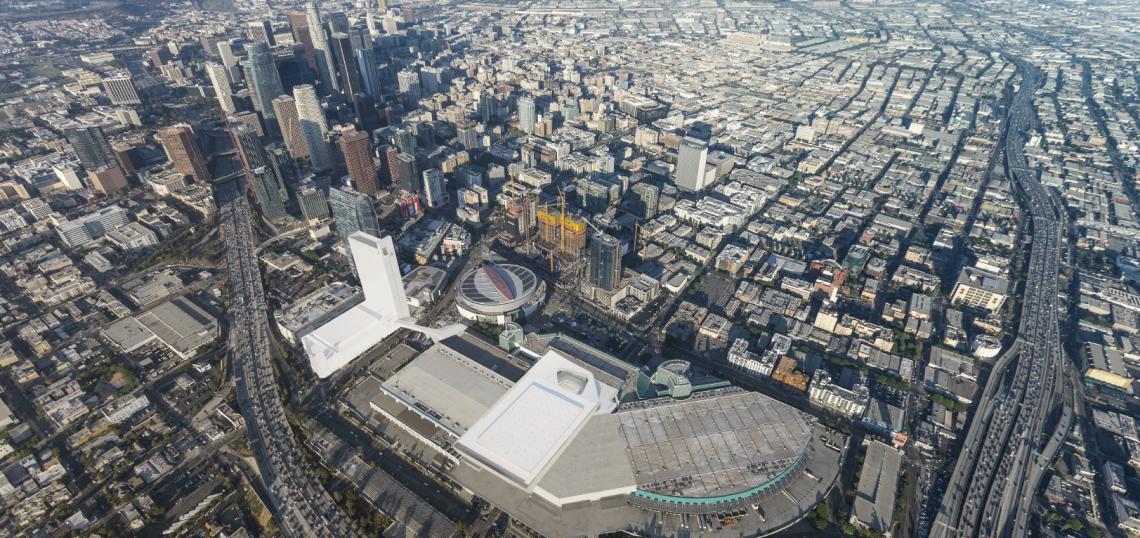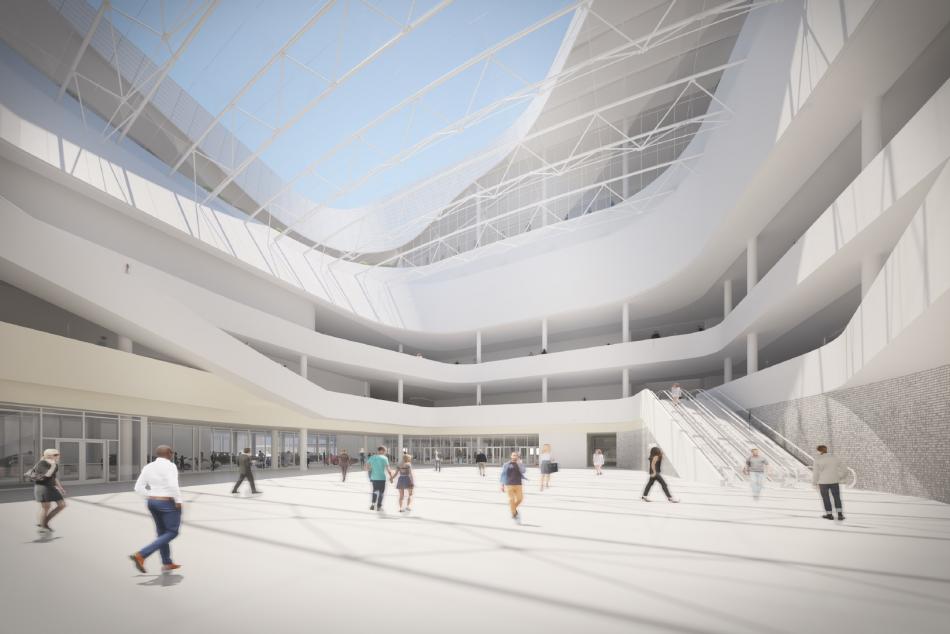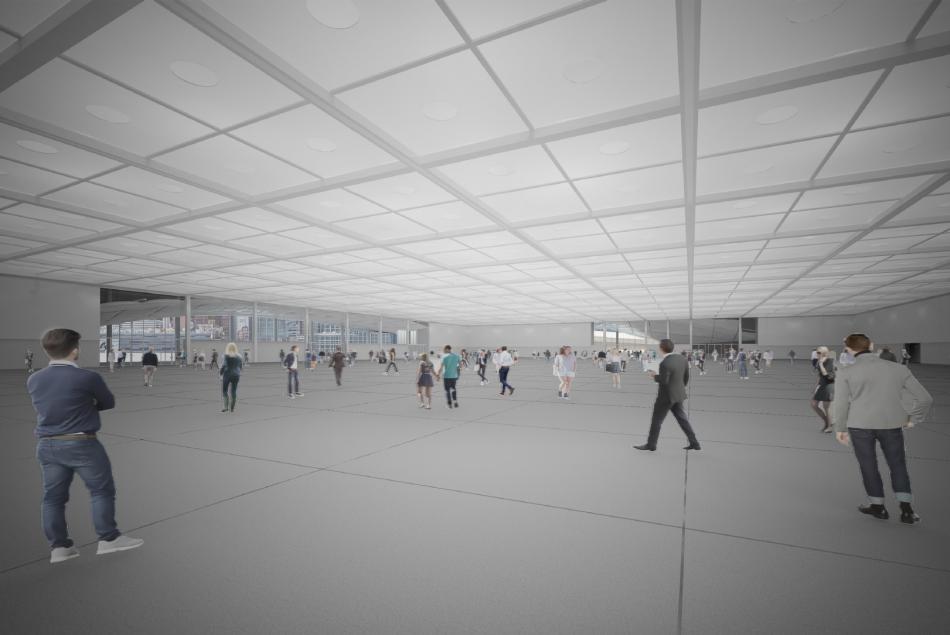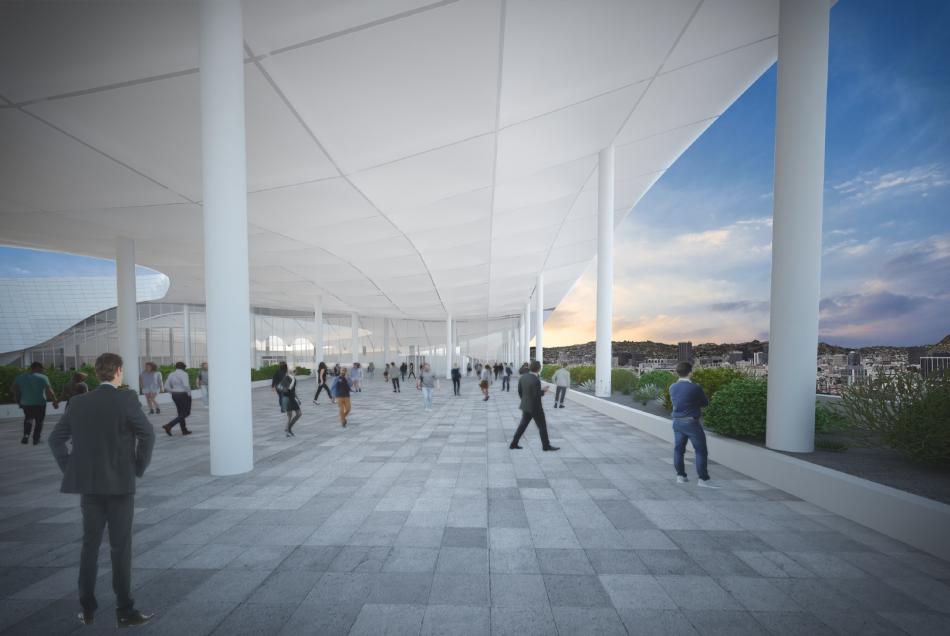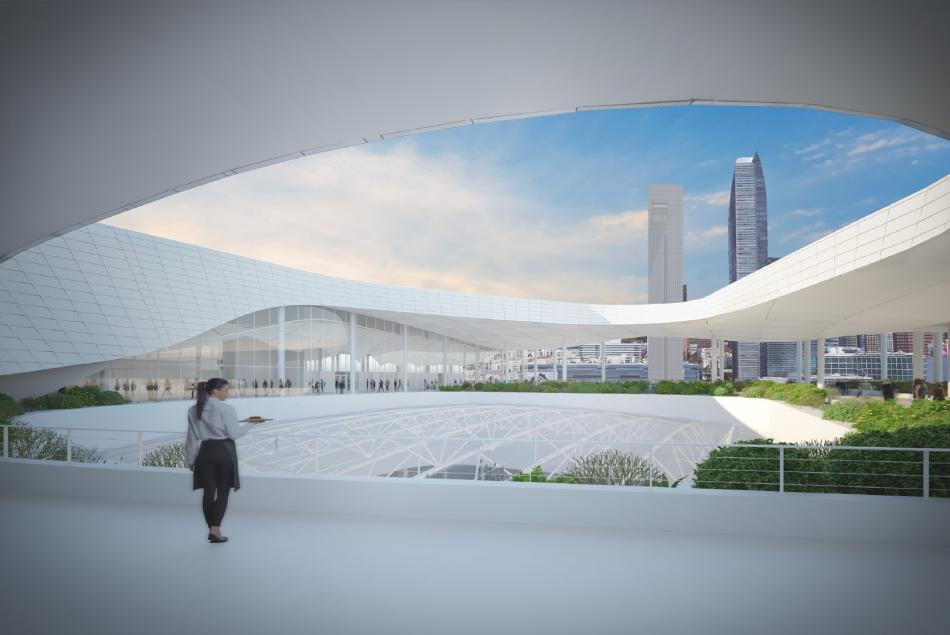With the 2028 Summer Olympics looming on the horizon, members of the City Council have pushed to get a long-proposed expansion of the Los Angeles Convention Center back on track. But a report discussed at a recent meeting of the City Council's Trade, Travel, and Tourism Committee complicates the discussion.
For more than a decade, city officials have worked on multiple plans to add new exhibition space to the Convention Center, which currently ranks 22nd in terms of available space nationwide. A relatively small footprint has deterred large conventions from choosing Los Angeles as a destination, according to city staff, relating the Convention Center to a second tier facility nationally. The competitive disadvantage has been exacerbated in recent years as competing West Coast facilities in Anaheim, San Diego, and San Francisco have recently augmented their facilities.
Officials with the City Tourism Department, along with L.A. Live developer AEG and Plenary Group, have looked to raise the profile of the Convention Center through a more than $1-billion project which would see the addition of a new exhibition hall built above Pico Boulevard, connecting the existing South and West Halls. That would amount to a roughly 45 percent expansion of the Convention Center, giving it more than 1 million square feet of exhibition space.
The Convention Center update would be paired with an expansion of the neighboring J.W. Marriott and Ritz Carlton hotel complex, which currently features just over 1,000 guest rooms in a 54-story tower on Olympic Boulevard. Plans call for a new 37-story tower featuring 861 hotel rooms at the intersection of Chick Hearn Court and Georgia Street, which at completion would make Marriott the largest in the City of Los Angeles based on room count, and the second largest hotel in the state of California.
However, a joint report from the City's Chief Legislative Analyst and City Administrative Officer cast doubts on the immediate future of the project. The report, as discussed in the Trade, Travel, and Tourism Committee, estimates that the cost of the expansion project as envisioned by AEG and Plenary Group could be approximately $6.5 billion over the coming 30 years - a hefty price tag at a time when the City of Los Angeles is faced with rising costs and a budget shortfall. The report also puts forth a second scenario, in which the City of Los Angeles delivers the project without private sector partners. That scenario, per the report, could cost $4.8 billion over the same 30-year period.
Alternatively, the CLA and CAO point to an option of delaying the project until after the 2028 Olympics. City officials indicate that the expansion would need to be completed within 6-to-12 months prior to the start of the Olympics, leaving narrow margins for a project that has a roughly 28-month construction timeline. That timeline would be particularly difficult to meet should the city opt to move forward without AEG and Plenary Group, as the Department of Public Works has seen a wave of retirements since the onset of the pandemic that has left more than 20 percent of positions vacant.
While Committee Chair Traci Park expressed concern about how the expansion project would be financed, she also expressed frustration at what she described as a relatively lack of detail to the report, arguing that it had not provided her with enough background to make an informed decision.
Vice Chair Tim McOsker argued in favor of continuing the existing arrangement with AEG and Plenary Group, echoing concerns about the city's capacity to deliver the Convention Center expansion without private sector partners. While a public-private partnership would be more costly, he argued that the city could craft an agreement in which it would pay that premium to ensure delivery within the allowable time frame for the Olympics.
Likewise, Councilmember Hugo Soto-Martinez, while stating that he did not see a need to complete the expansion prior to the Olympics, agreed that the facility was in need of an update. However, he also argued that the Convention Center expansion may not generate as much revenue for city coffers as it costs.
City Tourism Department executive director Doane Liu countered that the region's freeways and rail lines do not make money, but nonetheless contribute by facilitating additional economic impact. He also indicated that the Convention Center had reached 98 percent of pre-pandemic revenue as of this year, and was poised to surpass that figure in 2024.
In an interview, Liu described the Convention Center expansion as a key driver for future economic activity in Downtown Los Angeles, noting that office occupancy rates have cratered in the wake of the pandemic, restaurants have struggled, and hotels may be forced to close. Similar to McOsker, he questioned the city's capacity to deliver the project without private sector participation, pointing to the delays which plagued the planning and construction of the Sixth Street Viaduct.
Expansion of the Convention Center also enjoyed vocal support from members of the business community and organized labor, including Los Angeles Area Chamber of Commerce chief executive officer Maria Salinas and Los Angeles/Orange Counties Building and Construction Trades Council Ernesto Medrano, who jointly authored an op-ed in the Daily News to encourage the City Council to move forward with the project. Likewise, a representative of the Los Angeles Auto shop spoke in favor of the expansion, suggesting that the show may relocate elsewhere if the project is not built.
Per city staff, work on the Convention Center expansion would need to commence by March 2025 at the latest to meet the pre-Olympics deadline. McOsker and Park both sought options to potentially expedite that process. Staff suggested options such as permitting a temporary closure of Pico Boulevard or the Convention Center itself during construction, which could allow work to proceed more rapidly.
The Committee voted to instruct city staff to report back on the item within 45 days, requesting additional details on options for cost reductions and financing mechanisms.
Even as the potential for building the project comes up for debate, the City of Los Angeles has continued to process entitlements for the expansion. The City Council gave a formal sign-off to the expansion at its meeting on December 13.
Follow us on social media:
Twitter / Facebook / LinkedIn / Threads / Instagram
- Los Angeles Convention Center (Urbanize LA)





